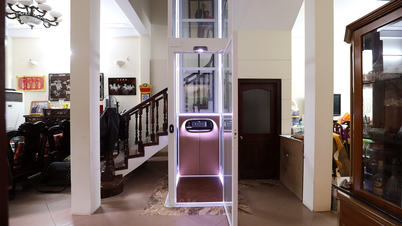1. Lay the foundation right from the start of your business
Building a strong brand starts with the first strategic decisions you make when learninghow to start a small business . The first and most important step is to clearly define your business's mission, core values, and target customer base . The mission should clearly express the company's reason for existence, while the core values will guide all business activities and decisions. Defining your target customer base accurately helps you focus your resources on the people who really need your products/services.
The naming, slogan and brand color selection must be consistent, memorable and reflect the business values. Small businesses should build a systematic brand from the beginning, because flexibility helps create a strong and distinct mark in the market.
Small businesses need to name, slogan and choose consistent brand colors.
2. Take advantage of free and low-cost media channels
Small businesses can leverage fanpages, Google Business, Zalo, and local groups to reach customers effectively without spending much money. Google Business is especially important for increasing local presence. Posting content should be useful, regular, and relevant to the customer file. Reviews from real customers help build credibility, so actively encourage positive feedback and handle all reviews professionally.
Take advantage of free communication channels such as fanpage, zalo
3. Build differentiation through customer experience
Small businesses have the advantage of intimacy and flexibility , which they should leverage to create personalized experiences and attentive customer care. Friendly communication, quick responses, and clear policies help build emotional branding. Customers often remember how they were treated more than the product, so be responsive and always be available to help.
Small companies bring closeness and flexibility to customers
This is especially important in service industries. For example, if you are starting an event management company , you will find that this requires a high level of trust from your customers. In the cleaning industry, having a good customer experience and a clear reputation is crucial to your competitiveness. Customers need to trust you to allow a service provider into their work or living space.
Clear policies on pricing, lead times, work processes and quality commitments also play an important role in building a brand. Transparency in all transactions will create trust and encourage customers to recommend the business to others.
4. Optimize and control marketing costs
For small businesses, marketing budgets are often limited, so optimizing and controlling costs is key to ensuring investment efficiency. Start by defining specific goals for each campaign and choosing the most appropriate communication channel for the target customer, instead of spreading resources.
Along with tracking ROI of marketing activities, businesses also need to manage overall cash flow to ensure budget balance. This is when cheap accounting services at MK Accounting become a powerful assistant: helping businesses record, allocate and control all expenses, from online advertising costs to promotional programs. Thanks to that, you can both save budget and have accurate data to reinvest in activities that bring the highest value.
Conclude
Building a strong brand for a small company does not require a large budget, but requires perseverance and consistency from the beginning. Understanding core values, conveying a clear message and committing to quality are the keys to creating long-term reputation. If small businesses know how to take advantage of their strengths, care for customer experience and exploit appropriate communication channels, they can completely build a solid brand at optimal cost.







![[Photo] Binh Trieu 1 Bridge has been completed, raised by 1.1m, and will open to traffic at the end of November.](https://vphoto.vietnam.vn/thumb/1200x675/vietnam/resource/IMAGE/2025/10/2/a6549e2a3b5848a1ba76a1ded6141fae)
































































































Comment (0)